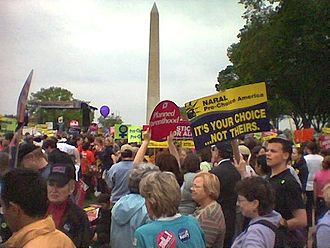
Courtesy of wikipedia.org
…the dogma lives loudly within you, and that is a concern. These were Senator Diane Feinstein’s words to Amy Coney Barret in 2017 when the latter was a candidate for a position on the U. S. Circuit Court of Appeals. The reference was to Barret’s Catholic faith and her membership in the Christian parachurch community, People of Praise, an ecumenical covenant community founded in South Bend.
As a Catholic, Barrett would be expected to oppose abortion, and this fact was uppermost in Feinstein’s mind; but the candidate’s Originalist interpretation of the Constitution should have worried the Senator more. Barrett doesn’t believe our founding fathers created a “living” document, one flexible enough to adjust to the times. For her, its meaning doesn’t alter. The words must be interpreted according to the intentions of the original framers.
Like a majority on the current Supreme Court, she feels a literal interpretation of the text imposes a restraint against biases when interpreting the law. It also maintains continuity from one generation to the next, giving the document coherence over time. On the issue of slavery, the difference between the two perspectives is notable.
Originalists argue the 14th Amendment prohibits racial discrimination. A living interpretation of the Constitution makes no guarantee. Some form of apartheid could evolve in the future. In this example, an Originalist position offers the greatest continuousness and maintains a historical link between one generation and the next.
When Originalists choose to focus on the text and ignore the guiding spirit of the Preamble, however, they leave the document rudderless. The Preamble isn’t a flowery introduction to the content. It is the mission statement for present and future generations to uphold: …to establish Justice, insure domestic Tranquility, provide for the common defence, promote the general Welfare, and secure the Blessings of Liberty to ourselves and our posterity.
Interpretation of the text should be rooted not only in history, which provides continuity, but also in the mission. As we move from agrarian to industrial and technological societies, our understanding of justice in terms of workers’ rights, for example, does alter. So does our notion of the general welfare which has become more inclusive.
For the Originalists, repealing Roe v. Wade poses a thorny problem if they wish to be consistent. More than three generations of women have lived under its protection. To throw out their predecessors’ interpretation of the 5th and 14th Amendments would appear to be arbitrary and capricious. Rather than declare those earlier jurists guilty of overreach, the present ones must show how overturning the precedent satisfies the Preamble.
The 1973 Supreme Court ruled a woman’s right to an abortion was protected under the “Due Process Clause“ of the two Amendments. The Fifth Amendment says no one shall be “deprived of life, liberty or property without due process of law.” The Fourteenth Amendment, ratified in 1868, uses the same eleven words to describe a legal obligation of all states.
Continuity is critical here because to leave the abortion question to individual jurisdictions would create a patchwork quilt of justice that is no more tenable than those that allowed local governments to permit or deny slavery. We fought a Civil War to rid ourselves of that inequality.
That woman should suffer a similar inequality is unthinkable. Consider. If Roe v Wade is overturned, a woman in Louisiana * could be tried for murder after having an abortion. In Oregon, that same woman would be afforded medical care.
The loss of Roe v. Wade would institutionalize discrimination. Based upon a biological differentiation similar to that which permitted slavery, many women would lose their right to privacy. Men would face no similar deprivation because birth laws would not affect them. Simply put, if Roe v. Wade is lost, 167 million women will be reduced to second-class citizens overnight.
The conservative justices of the current court are about to throw out 50 years of settled law. They should have an extraordinary reason for doing so, other than the belief their predecessors overreached. If they adhere to the principle of continuity, they must look to the Preamble. Will overturning Roe v. Wade establish Justice, insure domestic Tranquility, provide for the common defence, promote the general Welfare, and secure the Blessings of Liberty to ourselves and our posterity?
*Since writing this post Louisiana has dropped the death penalty section of the bill.
